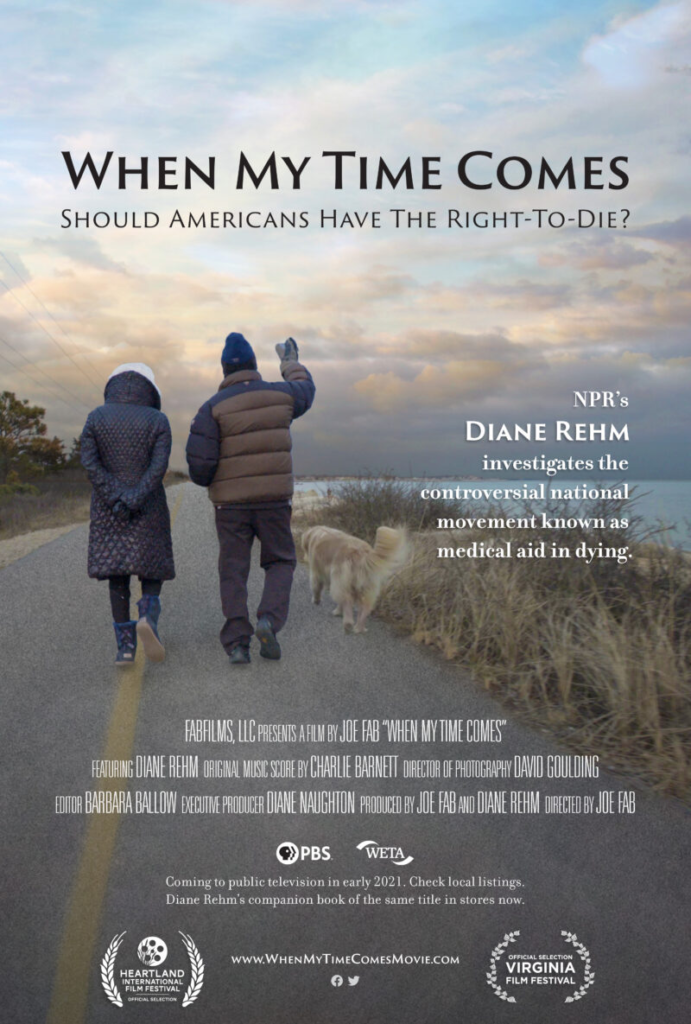Home > Resources > When My Time Comes
When My Time Comes
Should Americans Have the Right-to-die?
Film Synopsis
When the Peabody Award–winning journalist Diane Rehm, known for her 40-year career at NPR, decided to tackle the issue of Medical Aid in Dying (MAiD), it was personal. In 2004, her husband, John Rehm, began to shuffle his feet on their daily walks. Soon after, his hands began to tremor, and he was diagnosed with Parkinson’s disease, a progressive disorder of the nervous system.
Neither one a stranger to hard conversations, Diane and John talked deeply about his impending death. When the time came—he was told he had six months left to live and could no longer walk, stand, or feed himself—he said to Diane, “I am ready to die, and I want you to help me.” They approached John’s doctor, who told them that in the state of Maryland, he had neither the legal nor moral authority to help John die. The doctor shared that the only option was to voluntarily stop eating and drinking (VSED). This enraged John, but with no other options he chose VSED. On the 10th day, he died.
This experience led Diane and director Joe Fab on an exploration of what death could look like when there are options at the end of life. In their film, When My Time Comes, they talk with doctors, advocates, dying folks, and others about possibilities and choices when dying. Diane and Joe offer a history of MAiD in the United States, examining the complicated perspectives from interested parties within the religious, disabled, and political communities.
The film highlights policies in Maryland and uses Diane’s testimony in support of the choice for MAiD as a case study in how politics have played a part in this conversation. The messages of autonomy and choice are highlighted in her testimony. Diane stated to the members of the state house, “If you believe that only God should decide the time and circumstances of your death, I support you 100%. If you want every possible benefit of medical science to keep you alive as long as possible, I support you 100% as well. And for me and everyone else who wants the option of medical aid in dying when our time comes—we want to be supported 100% as well.”
The film is meant to start the conversation around choice and giving people the voice to determine what they deem best for themselves. Diane states, “Most people don’t want to talk about death. They push it out of their minds, but I believe we must talk about it…While death is out of our control, how we die is within our control.” Community groups and others can request a local screening of this film to help engage neighbors in this conversation. A PBS discussion panel about the film is also available.
Available on PBS Passport, Itunes, and Amazon. Run time 54 minutes.

